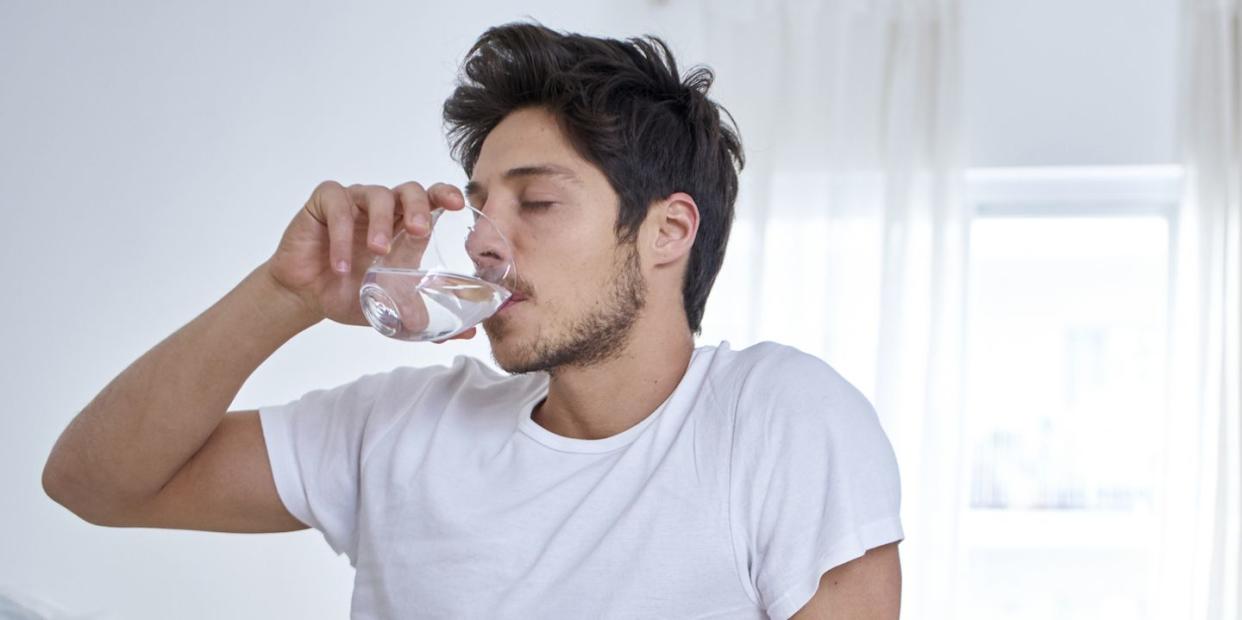A Urologist Explains How Much Water You Should Actually Be Drinking

We've all heard at some point that we should be drinking eight glasses of water per day to meet our hydration goals and stay healthy—but is that really true? In a recent video on her YouTube channel, urologist Dr. Rena Malik addresses some myths around water and hydration, starting with the misconception that if you drink less, you will need to pee less often.
"Drinking too little water makes your urine very concentrated," she says. "That concentrated urine can actually act like a bladder irritant... That means you may have the sensation that you need to go more frequently or more urgently."
That said, are the commonly cited eight glasses of water per day considered an ideal volume? Not necessarily. "You need to be having some form of fluids in that volume a day," says Malik. "20 percent of our fluids come from our food."
According to the Institute of Medicine, men are recommended to take in 125 ounces (3.7 litres) of total fluid from beverages and food each day, while women are advised to consume 91 ounces (2.7 litres).
"Our bodies do an amazing job of regulating our fluids, and it tells us when we need to drink by giving us signals that we are thirsty," she continues. "Generally speaking, your body doesn't decide that it's thirsty until you've lost about 2 percent of your body water. That's not a lot, and it's very easy to make up by drinking fluids."
Malik adds that in some cases, you will need to drink more fluids, such as if you get frequent urinary tract infections. In instances like these, you should follow the guidance of your doctor.
While being well-hydrated is an important part of our overall health and nutrition, and has even been linked to peak performance, Malik warns that being over-hydrated comes with its own issues. "Sometimes if you drink too much, it can lower the salt in your body too much and cause something called hyponatremia, which can make you very sick," she says.
You Might Also Like


